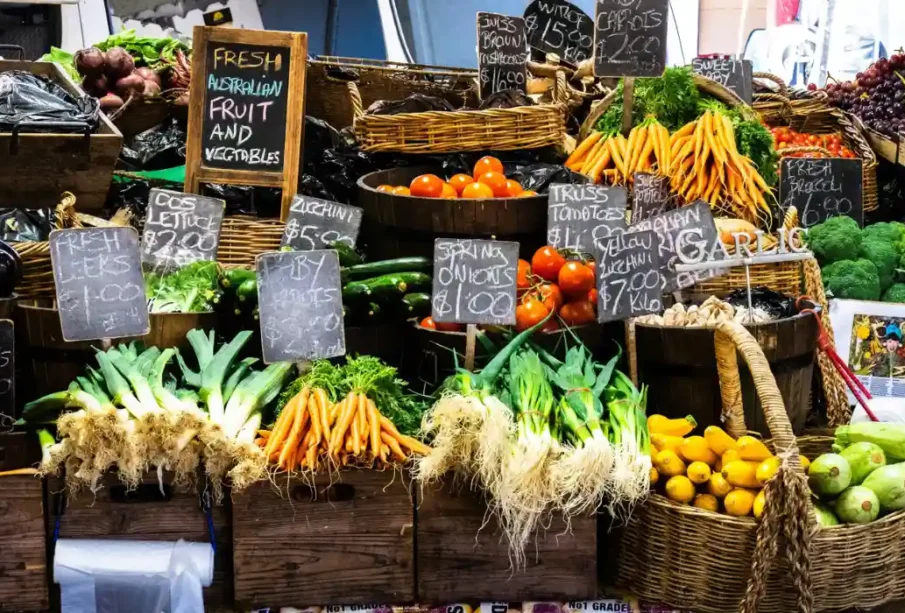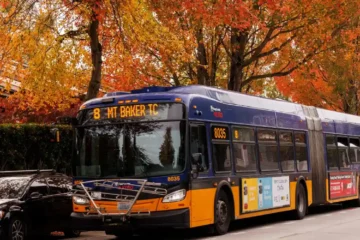Discovering King County’s Farmers Markets: Your Gateway to Pacific Northwest Flavors

Credit: Emelie Ortiz
Step into any of King County’s vibrant farmers markets and you’ll immediately understand why the Pacific Northwest has become synonymous with farm-to-table excellence. From the iconic Pike Place Market drawing millions of visitors annually to intimate neighborhood gatherings celebrating local harvest, these markets represent more than just shopping destinations—they’re cultural experiences that connect communities with the land that sustains them. King County boasts a vibrant array of farmers markets, offering residents and visitors access to fresh, locally produced food, with over 30 markets operating throughout the region during peak season. Whether you’re a tourist seeking authentic local experiences or a resident discovering the agricultural treasures in your backyard, King County’s farmers markets offer an unparalleled journey through seasonal flavors, artisanal crafts, and the stories of the people who grow your food.
Seattle Area Markets: Urban Gems with Distinct Personalities
Pike Place Market: The Legendary Heart of Seattle
Pike Place Market is Seattle‘s original farmers market and the center of locally sourced, artisan and specialty foods, operating daily year-round since 1907. Beyond the famous fish-throwing tradition at Pike Place Fish Market, visitors discover three generations of the Sosio family at Sosio’s Produce, offering pristine Pacific Northwest apples and pears. Don’t miss Frank’s Quality Produce for seasonal treasures like Rainier cherries in summer, or stop by the Market Spice Tea for their signature cinnamon-orange blend that’s become a Seattle souvenir staple.
The market operates from 9 AM to 6 PM Monday through Saturday, and 9 AM to 5 PM on Sundays, with the best selection arriving early morning. Public parking is available in the Pike Place Market Garage, though arriving via light rail or bus eliminates parking challenges entirely.
Ballard Farmers Market: Nordic Heritage Meets Modern Craft
Every Sunday year-round, the Ballard Farmers Market transforms Ballard Avenue into a Nordic-inspired celebration of artisanal foods and local crafts. Reflecting the neighborhood’s Scandinavian heritage, vendors like Tall Grass Bakery offer traditional rye breads alongside modern sourdoughs, while Olsen Farms brings heirloom vegetables grown using regenerative farming practices.
The market’s crown jewel is Full Tilt Ice Cream, serving seasonal flavors using milk from Washington dairies. Their lavender honey flavor, made with Sequim lavender, perfectly captures the essence of Pacific Northwest summers. Arrive early for the best pastry selection from multiple bakeries, and don’t leave without trying the kettle corn from Ballard Bridge Kettle Corn.
Operating from 10 AM to 3 PM, the market offers convenient street parking and easy access via the D Line bus route.
Capitol Hill Saturday Market: Bohemian Flair and Organic Excellence
The Capitol Hill Saturday Market embodies the neighborhood’s eclectic spirit, featuring organic produce vendors like Growing Washington, which specializes in Asian vegetables and herbs rarely found elsewhere in Seattle. Medicine Creek Farm brings certified organic salad mixes and microgreens preferred by several high-end Capitol Hill restaurants.
Local chef Maria Hines of Tilth Restaurant frequently sources ingredients here, stating, “The Capitol Hill market offers produce with flavor profiles you simply can’t find in conventional grocery stores. The diversity reflects our neighborhood’s cultural richness.”
The market operates Saturdays from 11 AM to 3 PM year-round at Cal Anderson Park, with ample street parking available on side streets.
West Seattle Farmers Market: Family-Friendly Community Hub
Nestled in the heart of the West Seattle Junction, this Sunday market combines family-friendly atmosphere with exceptional local products. Located at California Ave SW & SW Alaska, in the heart of the West Seattle Junction, the market features Taylor Shellfish Farms offering freshly shucked oysters and geoduck clams, bringing the bounty of Puget Sound directly to shoppers.
Children love watching the bread baking demonstrations at Columbia City Bakery’s booth, while parents appreciate the competitive prices on organic produce from Martha’s Vineyard Farm. The market’s location makes it perfect for combining shopping with exploring West Seattle’s cafes and boutiques.
University District Farmers Market: Student-Friendly Prices, Educational Opportunities
Operating Saturdays from May through December, the University District Farmers Market caters to budget-conscious students while maintaining exceptional quality. Volunteer Park Produce offers “$5 fill-a-bag” deals on slightly imperfect but perfectly delicious fruits and vegetables, while Colinwood Farms provides affordable cuts of grass-fed beef and free-range poultry.
The market regularly hosts educational booths where local extension agents teach preservation techniques, budgeting tips, and cooking basics—perfect for students learning to cook for themselves.
Magnolia Farmers Market: Intimate Summer Haven
This intimate Saturday market operates from June through September, offering a premium selection in a neighborhood setting. Magnolia residents treasure the personal relationships with vendors like Alvarez Organic Farms, whose owner, Carlos Alvarez, has been growing vegetables in the Skagit Valley for over 20 years. His tomatoes, available in over 15 varieties, are legendary among local chefs.
The market’s small size creates a close-knit community atmosphere where vendors know regular customers by name and save special items for their favorite shoppers.
Bellevue Markets: East Side Elegance Meets Agricultural Tradition
Crossroads Farmers Market: Multicultural Culinary Celebration
Operating Tuesdays from June through September in the Crossroads Shopping Center, this market reflects Bellevue’s incredible diversity. Vietnamese vendors offer fresh herbs like rau ram and ngo gai, while Ethiopian vendors bring berbere spice blends and injera bread. Mexican vendors provide authentic tortillas and fresh salsas using locally grown chilies.
The market’s covered location and ample parking make it accessible regardless of weather, while the multicultural offerings create unique fusion opportunities for adventurous cooks.
Bellevue Farmers Market: Upscale Quality and Convenience
Thursdays from May through October, the Bellevue Farmers Market attracts discerning shoppers seeking premium quality. Vendors like Whistling Duck Farm offer heritage breed meats, while Stoknes Farms provides vegetables grown specifically for high-end restaurants. The market’s partnership with local culinary schools means cooking demonstrations featuring seasonal ingredients are common.
Located downtown with excellent public transit access and covered parking nearby, this market combines convenience with exceptional quality that mirrors Bellevue’s reputation for excellence.
South King County: Agricultural Heartland Markets
South King County’s markets showcase the region’s agricultural roots, offering direct relationships with farming families who have worked the fertile valley soils for generations. These markets provide exceptional value and authentic farm experiences that urban markets cannot match.
Auburn Farmers Market: Valley Fresh Traditions
Sundays from June through September, Auburn‘s market celebrates the Green River Valley’s agricultural heritage. The Coats family has been growing corn here for four generations, and their sweet corn, picked just hours before market, represents everything great about local agriculture. Valley Flora Farm offers cut flowers grown without pesticides, creating stunning bouquets at half the cost of city florists.
Auburn’s market emphasizes the connection between farmer and consumer, with many vendors happy to discuss their growing practices and offer cooking suggestions for unfamiliar vegetables.
Kent Farmers Market: Saturday Morning Community
Kent‘s Saturday market from June through October draws families seeking quality produce at fair prices. Berger Farms brings berries that define Pacific Northwest summers—strawberries in June, raspberries and blueberries through August, and marionberries in late summer. Their u-pick operation allows customers to experience harvesting firsthand.
Local resident Jennifer Martinez shares,
“We’ve been shopping at Kent’s market for five years. My kids have watched the same vendors’ families grow up, and they’ve learned where their food actually comes from.”
Federal Way and Maple Valley: Seasonal Specialties
Both markets operate Saturdays from May through October, with Federal Way focusing on affordable family portions while Maple Valley emphasizes organic and sustainable growing practices. Maple Valley’s market features Jubilee Farm, specializing in herbs and edible flowers used by restaurants throughout the region.
Renton Farmers Market: Tuesday Treasures
Renton’s Tuesday market from June through September serves the working community with convenient after-work shopping. Klein Family Farm has been supplying the market with root vegetables and winter squash for over 15 years, offering varieties like delicata and honeynut squash that showcase the creativity of small-scale farming.
Unique Suburban and Rural Markets: Hidden Treasures
Vashon Farmers Market: Island Time and Artisanal Excellence
Operating Wednesdays and Saturdays from April through October, Vashon Island’s markets offer a unique ferry-accessible destination combining rural charm with sophisticated offerings. Sea Breeze Farm grows over 200 varieties of vegetables using biodynamic methods, while Vashon Island Coffee Roasterie provides beans roasted on-island.
The island setting creates a relaxed atmosphere perfect for combining market visits with exploring Vashon’s galleries, beaches, and hiking trails. Ferry access makes this a popular day trip destination for Seattle visitors seeking rural experiences.
Woodinville Farmers Market: Wine Country Flavors
Saturdays from April through October, Woodinville’s market reflects the area’s reputation for wine and culinary excellence. JM Cellars often hosts tastings featuring wines paired with market produce, while local restaurants like The Herbfarm source ingredients directly from market vendors.
Located in the heart of Washington wine country, this market perfectly complements visits to the region’s numerous tasting rooms and provides ingredients for gourmet picnics in vineyard settings.
Issaquah Public Market: Mountain Foothills Fresh
Saturdays from April through October, Issaquah’s market benefits from its proximity to Cascade Mountain foothills. Mountain View Herbs grows culinary and medicinal herbs in micro-climates created by elevation changes, offering varieties impossible to grow at sea level.
The market’s location makes it perfect for combining shopping with hiking in nearby Tiger Mountain or exploring Issaquah’s historic downtown.
Enumclaw Country Market and Others
Enumclaw’s daily operation from May through October serves the farming community while welcoming visitors exploring Mount Rainier’s foothills. Enumclaw Plateau farmers specialize in hay and grain crops, but the market features vegetable vendors taking advantage of the area’s rich volcanic soils.
Carnation’s Tuesday market showcases Snoqualmie Valley agriculture, while North Bend and Black Diamond markets offer scenic mountain settings and access to hiking trails, making them perfect stops for outdoor enthusiasts.
What Makes King County Markets Special?
King County’s unique geographic position creates ideal growing conditions that set these markets apart from others nationwide. The maritime climate provides mild, wet winters and warm, dry summers perfect for growing everything from delicate salad greens to robust root vegetables. The nearby Cascade Mountains create diverse microclimates supporting specialized crops like lavender, hazelnuts, and wine grapes.
Sustainable farming practices dominate King County agriculture, with many vendors certified organic or following regenerative agriculture principles. The region’s emphasis on environmental stewardship means shoppers can feel confident about their purchases’ ecological impact.
Local food systems provide significant economic benefits, with farmers markets generating over $50 million annually in direct sales while supporting countless indirect jobs in transportation, processing, and retail sectors. The economic multiplier effect means every dollar spent at farmers markets generates approximately $1.50 in additional local economic activity.
The Pacific Northwest’s commitment to food safety means markets maintain high standards for vendor certification and product handling, ensuring customer confidence in product quality and safety.
Insider Tips and Seasonal Guide
For optimal selection and freshness, arrive within the first hour of market opening when vendors have fully stocked displays and energy levels are highest. Most vendors appreciate early customers and often offer better prices on bulk purchases.
Spring (March-May): Look for asparagus, rhubarb, spring onions, lettuce, and flower starts. This is planting season, so many vendors offer vegetable starts and garden advice.
Summer (June-August): Peak season brings berries, stone fruits, corn, cucumbers, tomatoes, and herbs. Prices are lowest and selection is highest during these months.
Fall (September-November): Apple and pear season, plus winter squash, root vegetables, and preserved goods. Many vendors offer canning and preservation workshops.
Winter (December-February): Stored crops, preserved foods, evergreen wreaths, and hot beverages. Limited but dedicated vendors maintain operations year-round.
Always bring reusable bags, small bills and coins for easier transactions, and a cooler for temperature-sensitive items during warm weather. Most markets accept EBT cards and many offer matching programs doubling benefits for low-income shoppers.
Build relationships with vendors by asking questions about growing practices, storage recommendations, and recipe suggestions. Most farmers love sharing knowledge and will remember customers who show genuine interest in their work.
Chef Tom Douglas of Seattle’s Palace Kitchen restaurant notes, “King County farmers markets aren’t just about buying ingredients—they’re about connecting with the people and processes that create exceptional food. That connection elevates every meal.”
King County’s farmers markets represent the best of Pacific Northwest agriculture and community spirit, offering experiences that nourish both body and soul. From Pike Place Market’s historic charm to intimate neighborhood gatherings, each market provides unique opportunities to connect with local food systems and the passionate people who sustain them.
Whether you’re a visitor seeking authentic Seattle experiences or a local resident discovering new favorites, these markets offer something for everyone. The diversity of offerings, commitment to quality, and emphasis on sustainability make King County’s farmers markets true community treasures worth exploring throughout the seasons.
Plan your market visits, bring your appetite for adventure, and prepare to discover why locals consider farmers markets essential to Pacific Northwest living. Your taste buds—and your community—will thank you for supporting these vital local institutions that keep our region’s agricultural heritage alive and thriving.










